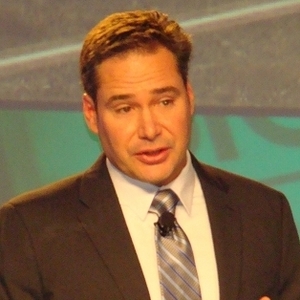US biodiesel surpasses high expectations with year-end figures

Photo: Ron Kotrba, Biodiesel Magazine
January 28, 2014
BY Ron Kotrba
The U.S. biodiesel industry surpassed its already impressive year-end expectations for production by manufacturing nearly 1.8 billion gallons last year, according to recently released U.S. EPA figures, providing further evidence why the agency must boost its renewable volume obligation for biodiesel this year under the renewable fuel standard (RFS). Earlier predictions were that U.S. biodiesel producers would pump out 1.7 billion gallons, blowing past the 1.28 billion gallon standard for biomass-based diesel and fulfilling a majority of the 2.75 billion ethanol-equivalent gallons in the advanced biofuels pool.
Industry leaders pointed to the new 2013 numbers and again called upon the administration to increase the biodiesel and advanced RFS proposals to at least reflect current production rates.
“The success of the biodiesel industry in 2013 proves that the RFS is working today and stimulating the commercial-scale production of advanced biofuel,” said Joe Jobe, CEO of the National Biodiesel Board, the U.S. trade association. “It also makes it incredibly frustrating that the Obama administration is backing away from this progress with its recent RFS proposal.”
Advertisement
“If our industry produced 1.8 billion gallons of Advanced Biofuel in 2013, why is the Administration retreating to 1.28 billion gallons for 2014?” Jobe asked. “We’re proving it can be done. What we need is consistent policy, and that is sorely lacking in Washington right now.”
“It is incomprehensible that an administration that has unequivocally supported renewable fuels since day one has suddenly decided to retreat on the first advanced biofuel to reach commercial-scale production nationwide,” Jobe said. “It threatens biodiesel businesses across the country and thousands of jobs, and it undercuts the Administration’s stated priority of reducing greenhouse gas emissions.”
“Perhaps more importantly, it jeopardizes the future of all renewable energy by sending a terrible signal to entrepreneurs and investors that these policies are not stable, even under a president who professes to support them,” Jobe said.
Because some excess 2013 biodiesel production could be “carried over” into 2014 for RFS compliance purposes, the real RFS market this year could be closer to 1 billion gallons for biodiesel—a cut that would shock the industry. News outlets around the country have published stories recently highlighting the harm the proposal would do to local producers.
Advertisement
In addition to the weak RFS proposal, Congress also allowed a key biodiesel tax incentive to lapse on Dec. 31, further disrupting the industry.
“Many biodiesel producers have been running at full capacity in recent months,” Jobe said. “That’s driving down costs and creating tremendous economic activity. Yet instead of embracing this success, Washington is walking away from it.”
The total biomass-based diesel volume of 1.8 billion gallons is primarily biodiesel but also includes renewable diesel, a similar diesel alternative made with the same feedstocks but using a different technology.
According to a recent study, the industry is supporting more than 62,200 jobs nationwide and nearly 8,000 of those jobs would be threatened by a drop in production back to 1.28 billion gallons. Biodiesel reduces greenhouse gas emissions by 57 to 86 percent according to EPA’s own calculations.
Related Stories
The U.S. EPA on July 8 hosted virtual public hearing to gather input on the agency’s recently released proposed rule to set 2026 and 2027 RFS RVOs. Members of the biofuel industry were among those to offer testimony during the event.
The USDA’s Risk Management Agency is implementing multiple changes to the Camelina pilot insurance program for the 2026 and succeeding crop years. The changes will expand coverage options and provide greater flexibility for producers.
President Trump on July 4 signed the “One Big Beautiful Bill Act.” The legislation extends and updates the 45Z credit and revives a tax credit benefiting small biodiesel producers but repeals several other bioenergy-related tax incentives.
CARB on June 27 announced amendments to the state’s LCFS regulations will take effect beginning on July 1. The amended regulations were approved by the agency in November 2024, but implementation was delayed due to regulatory clarity issues.
SAF Magazine and the Commercial Aviation Alternative Fuels Initiative announced the preliminary agenda for the North American SAF Conference and Expo, being held Sept. 22-24 at the Minneapolis Convention Center in Minneapolis, Minnesota.
Upcoming Events










